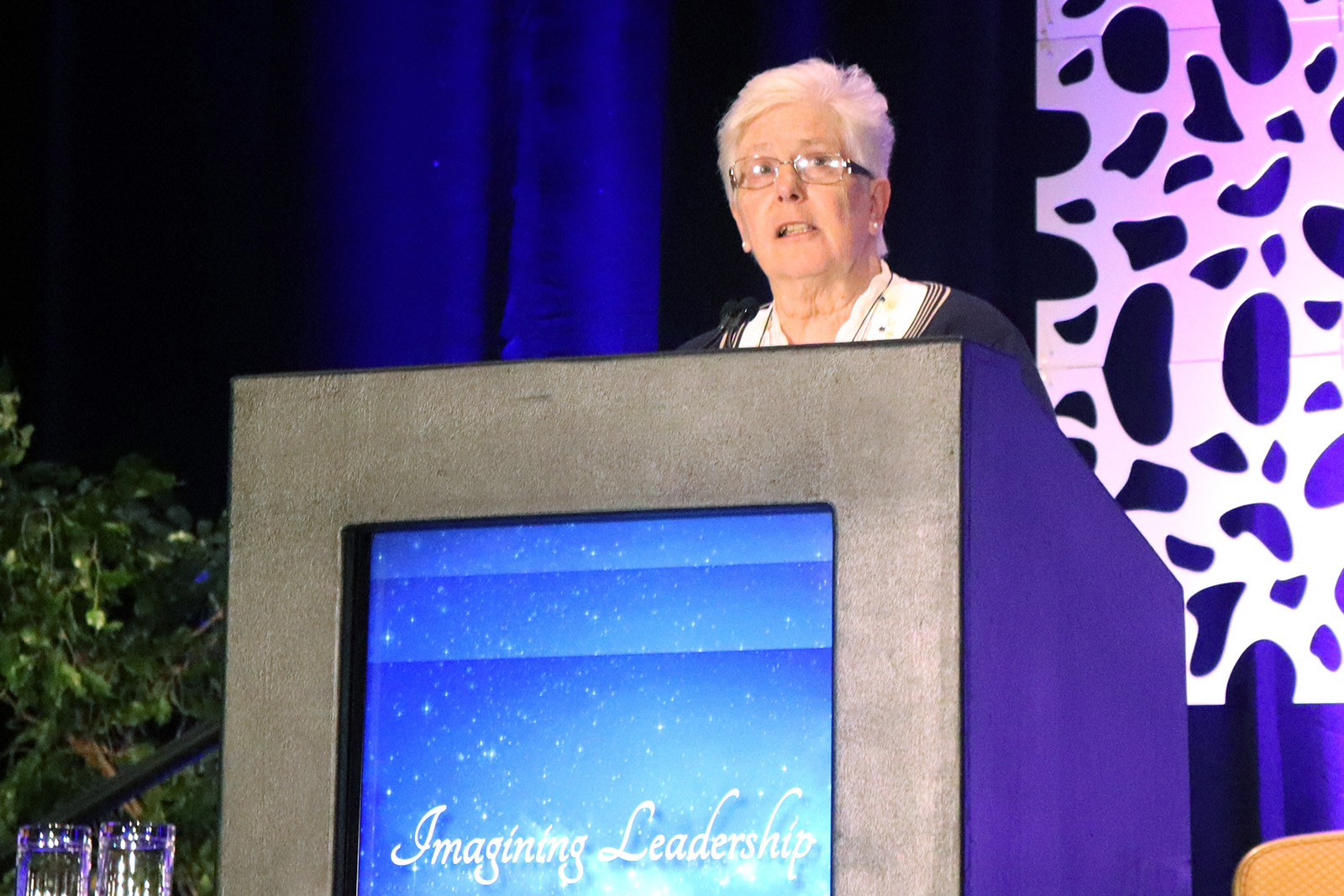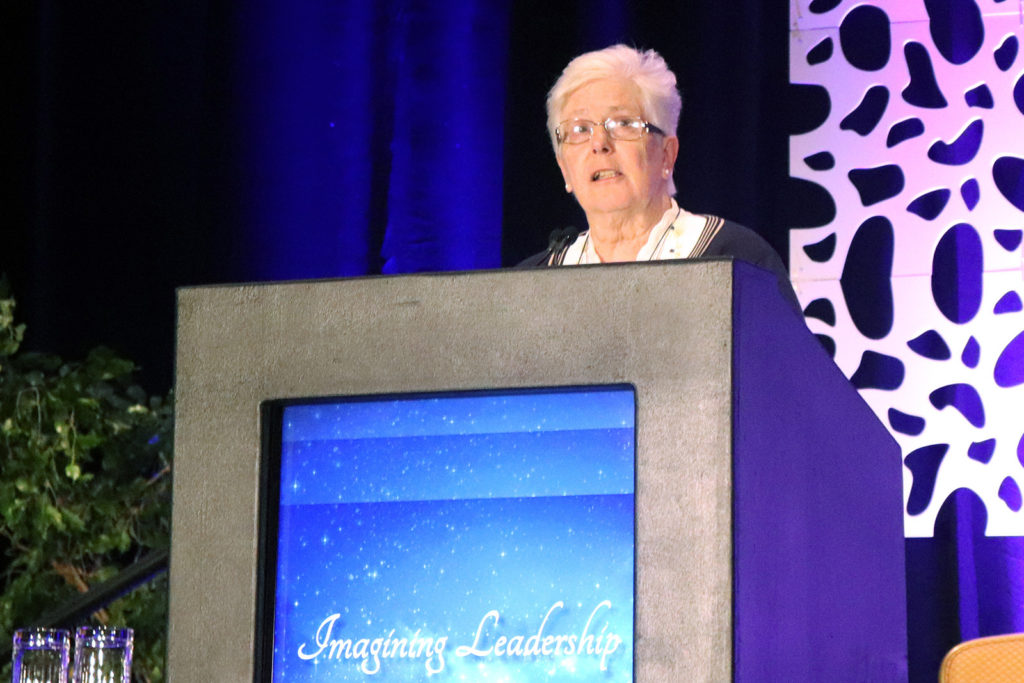
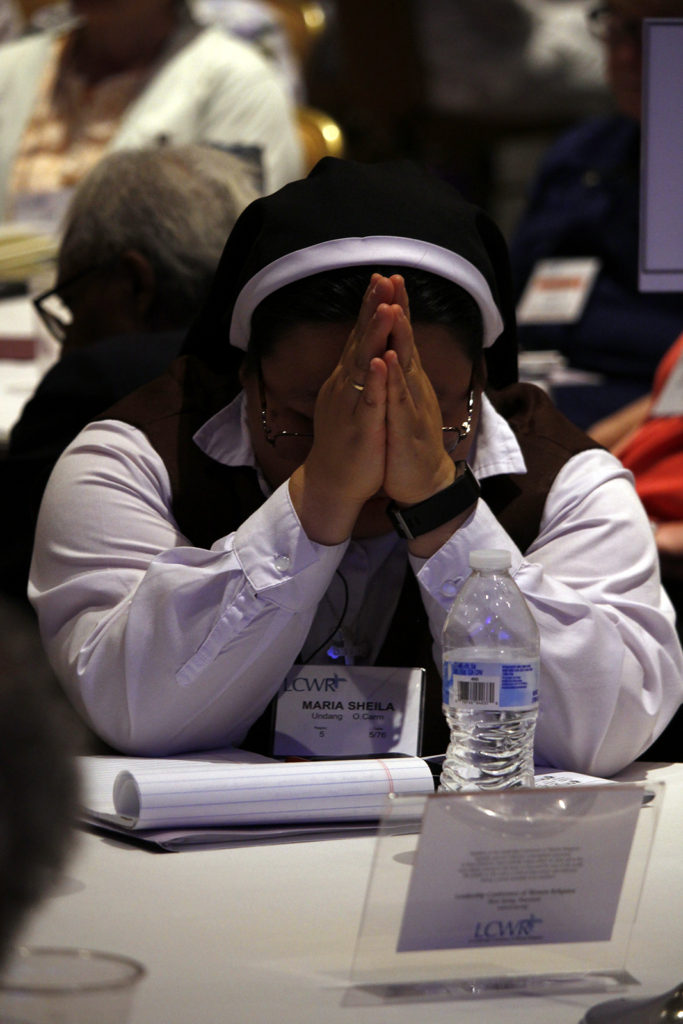
SCOTTSDALE — In a room filled with nearly 900 leaders of various women religious communities, not everyone could practically step up to the mic.
A few did here and there throughout the Leadership Conference of Women Religious annual national assembly Aug. 13-16 at the Fairmont Scottsdale Princess, but it was the keynote speaker who set the tone early on for action. Sr. Pat Murray, a Loreto Sister overseeing the Rome-based International Union of Superiors General, offered six in-depth reflections during her keynote address Aug. 14. Each one challenged the sisters to concretely imagine leadership in a global community and both ponder and discuss how their charisms and ministries can create it.
She called for the women religious to “widen the tents of our hearts” when it came to hospitality and ministry while ensuring that the “stakes,” or the faith, remains deeply rooted. Sr. Pat hinted that keeping their gaze fixed on Jesus can be equally challenging for sisters as it is for laity, especially as they listen to the woes of migrants, refugees, the unemployed, victims of trafficking, the downhearted and others searching for the truth the Church offers.
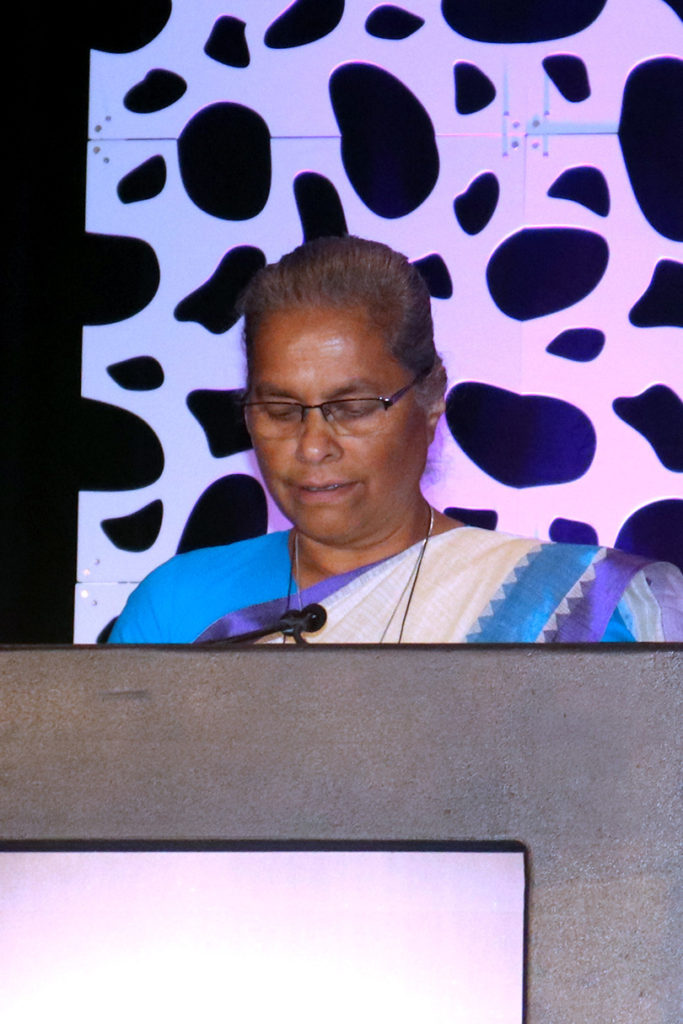
“We must provide the practical things needed at that moment, but we are called to give more — a radial prophetic witness of having a global heart, of being a pilgrim and prayer presence” who makes intercessions and is firm in faith, Sr. Pat said.
The Loreto sister, whose eternal Irish accent held the ballroom guests attentive and actively taking notes and screenshots, especially caught the ears of some Benedictine sisters when she reflected on being present at the borderlands.
“It’s not only geographical, but it’s personal” borders, Sr. Karen Brink, OSB said, echoing the types of borders Sr. Pat referenced. Sr. Karen’s Pittsburgh-based community, which began its 150th anniversary celebration Aug. 25, is not in a position to physically go to the border, but its prioress did feel called to discern what can be done for the border situation.
Sr. Pat touched on the call to embrace vulnerability, including within congregations. The majority worldwide have fewer than 200 members and many in the global south struggle to provide for their members and ministries.
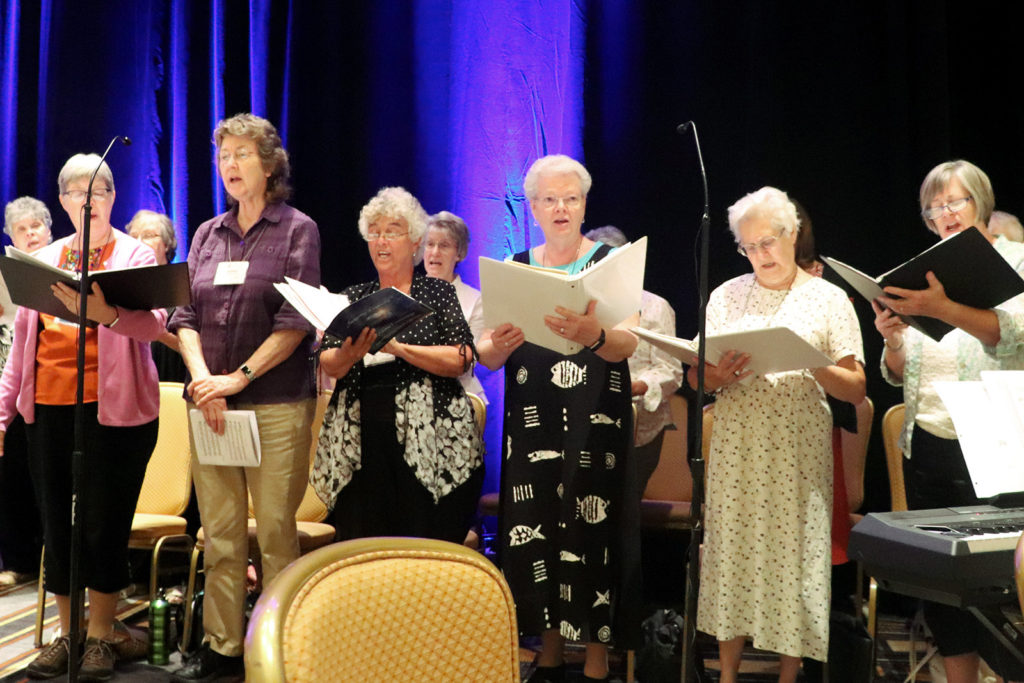
“For me, it is as if we are all arriving together in the same sacred space, where we are experiencing a greater fragility and vulnerability,” Sr. Pat said. At the same time, it spiritually unites themselves with many whom they serve, especially those at the peripheries. She encouraged the crowd to face the future with the same courage and conviction of their founders and foundresses who saw themselves as missionary disciples.
She encouraged celebration of their rich diversity, listening for the “long note” and involvement in “web-weaving” of relationships. She cited several global examples of the latter, particularly in Africa, but also of 42 anti-trafficking networks led by women religious worldwide. They often partner with government, local and humanitarian personnel in these efforts.
Sr. Catherine O’Connor, a sister of St. Brigid of Ireland, found Sr. Pat a source of inspiration with her global perspective and challenge of finding how the Gospel will take root and be transformative.
“She really spoke to the heart of why we’re here. We’re acutely aware of the challenges and difficulties of so many people in our world today,” Sr. Catherine said, noting those who are disempowered, refugees or lack critical resources. “We come together in solidarity with each other so we can go home and inspire our sisters to continue to be a voice for the voiceless in our world and how we can support them in our daily ministry.”
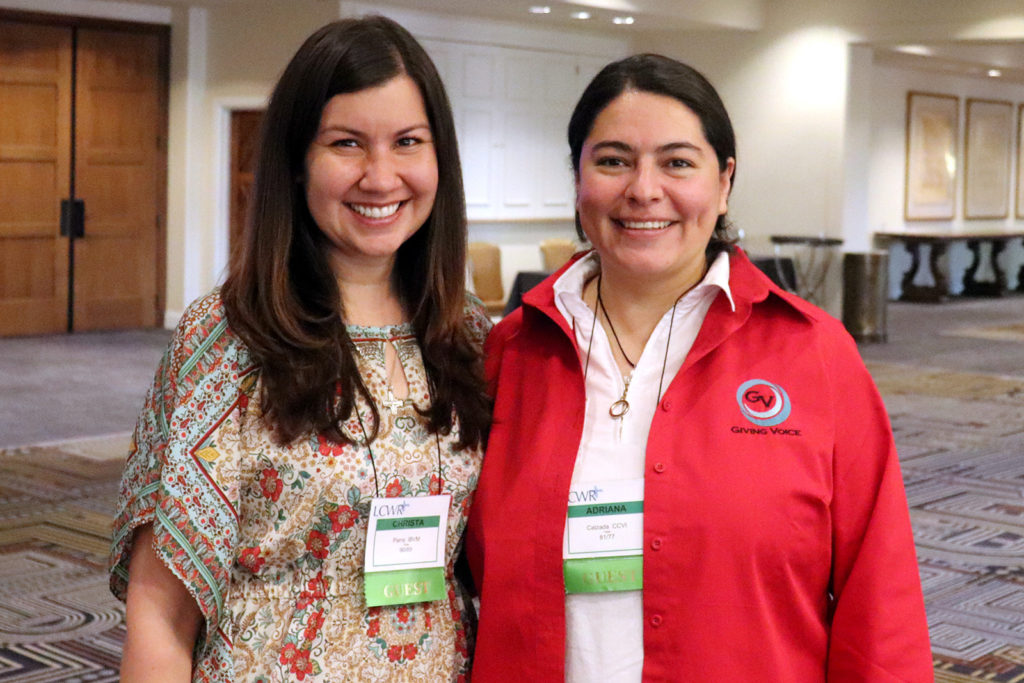
Loreto Sister Christa Parra — a guidance counselor at St. Francis Xavier School for the last three years — said she was inspired by Sr. Pat’s presentation to work with and accompany people on the margins.
“Accompaniment is so important, listening to the people we are honored and privileged to serve to walk with,” said Sr. Christa, who professed solemn vows in 2016. “I think it’s important to listen to the pain of people.”
Though not the head of a religious community, Sr. Christa attended as a part of a delegation of Giving Voice, a network of younger Catholic sisters from different communities across the U.S.
“We love our sisters dearly. We love our charisms. We love everything about religious life,” she said. “We also have developed these relationships to kind of lift one another up, empower one another to use our gifts and to contribute more to the Church, to religious life, to the world. It’s very encouraging for our vocations to find other young people who also believe in religious life.”
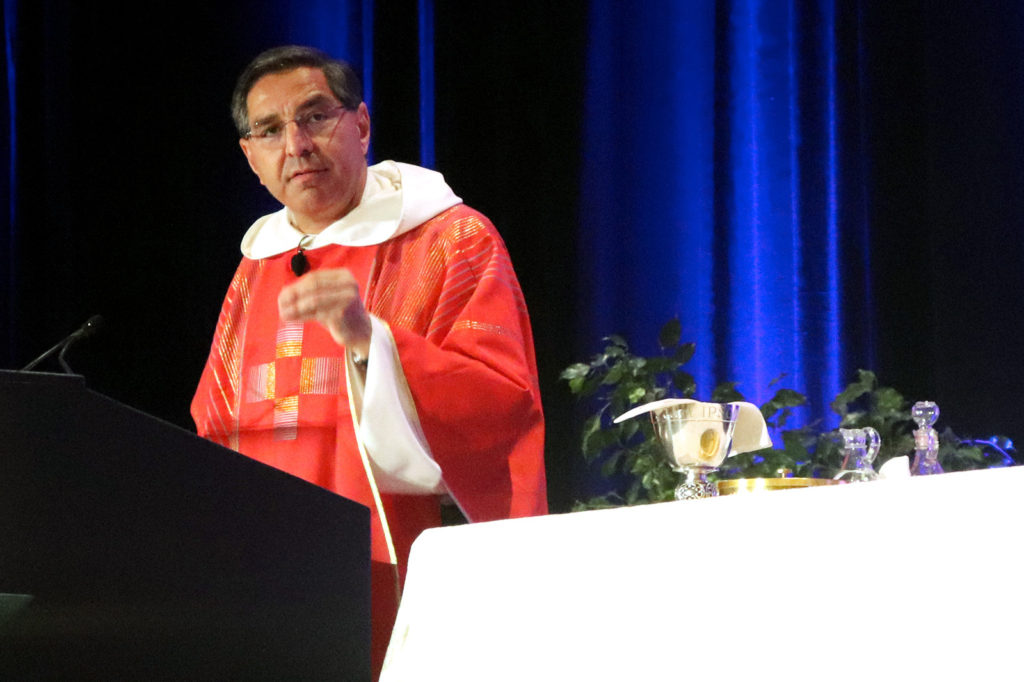
The group was invited among other networks of religious to share with the LCWR their concerns.
“I appreciate just being at the table and being a part of the conversation. The sisters want to hear what we have to say, and want to hear our perspective and what’s important to us, what matters to us,” Sr. Christa said. “Many times, I looked around the room and thought, ‘these women inspired me to come to religious life and stay in religious life.’”
Daughter of Charity Sister Julie Kubasak, Visitatrix — the equivalent of a provincial — for her community, returned to Phoenix to attend the assembly. She previously served as principal of St. Vincent de Paul School before taking on her current responsibility. She said she appreciated the honesty with which the sisters’ discussed the future of their communities.
“It’s not just, ‘Let’s do everything the same we always have, and let’s get more vocations,’” she said. Rather the attitude is one of recognizing “what are some things we need to really do to move forward and do what God wants us to do as far as religious life.”
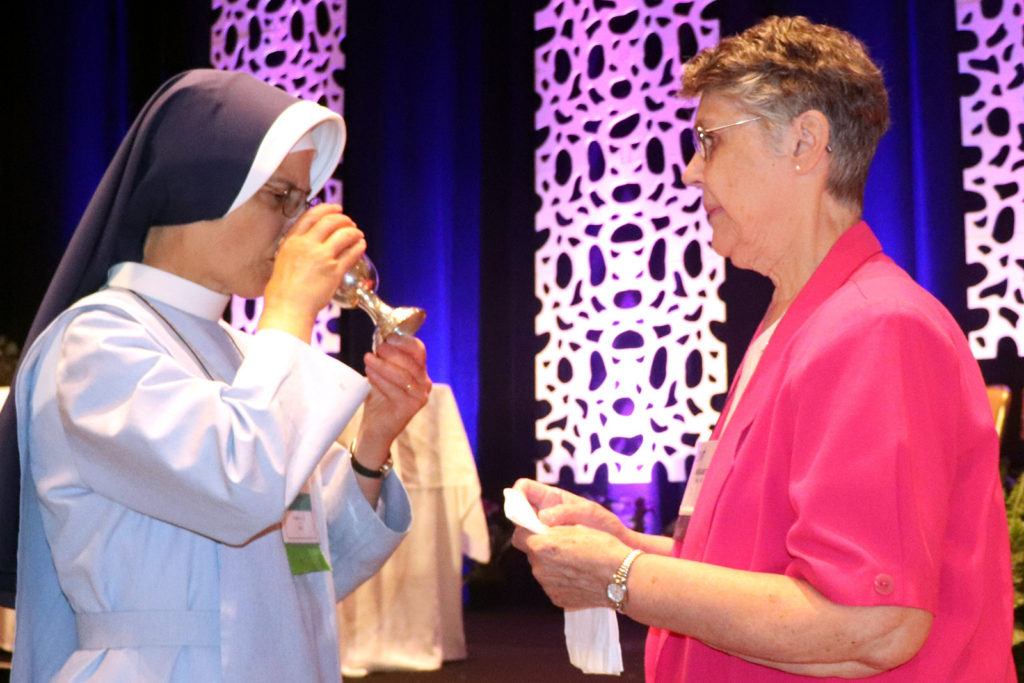
Reflecting on the impact that religious sisters have had on the Diocese of Phoenix, Sr. Julie noted that her community has been at St. Vincent for 60 years.
“Am impact of teaching 60 years’ worth of however many kids, plus their families, and the other ministries that the sisters get into,” such as home visits and teaching English to adults. “It would take a pretty good mathematician to calculate it all. And that’s just one community!”
Though not a member of the LCWR, Sr. Anthony Mary Diago, RSM, Director of the Office of Consecrated Life for the Diocese of Phoenix, represented the diocese at the assembly. “This was a wonderful opportunity for the sisters to gather together and learn from one another,” she said.
Contributing to this story was Tony Gutiérrez.



